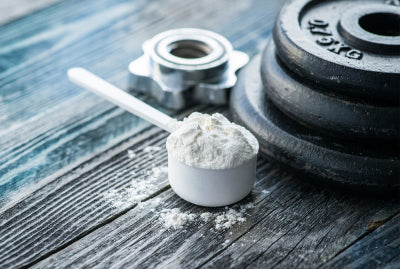
What Creatinine Level Is Dangerous?
What Creatinine Level is Dangerous?
Introduction
Creatinine is a waste product produced by muscles when creatine, a compound essential for muscle energy production, is broken down. Blood creatinine levels can be an important indicator of kidney function. In this article, we’ll explore what creatinine levels are dangerous , why it’s crucial to monitor these levels, and best practices for maintaining healthy kidneys while using creatine to enhance exercise performance.
Understanding Creatinine
What is Creatinine?
Creatinine is a byproduct of creatine metabolism. It is filtered by the kidneys and excreted in the urine. Blood creatinine levels can vary depending on several factors, including age, gender, muscle mass, and general health.
- Creatine and Creatinine : Creatine is often used as a supplement to increase muscle mass and improve athletic performance. It is partially converted to creatinine, which is then eliminated by the kidneys.
- Measuring Creatinine Levels : A blood test is commonly used to measure creatinine levels and assess kidney function.
Normal Creatinine Levels
Creatinine levels vary from person to person, but here are some values that are generally considered normal:
- Men : 0.6 to 1.2 mg/dL
- Women : 0.5 to 1.1 mg/dL
Slightly higher levels may be normal in people with high muscle mass or in athletes taking creatine supplements.
What Creatinine Level is Dangerous?
Signs of High Creatinine Levels
A high creatinine level may indicate a kidney problem. Here are some signs to watch for:
- Fatigue : The kidneys do not filter waste properly, which can lead to increased fatigue.
- Edema : Swelling of the feet, ankles or hands due to water retention.
- Foamy urine : Presence of protein in the urine.
- Nausea and vomiting : Accumulation of toxins in the body.
Danger Thresholds
A creatinine level that is significantly higher than normal may be cause for concern. Here are some general indications:
- 1.3 to 1.9 mg/dL : May indicate mild kidney failure.
- 2.0 to 4.0 mg/dL : Moderate renal impairment.
- Above 4.0 mg/dL : Severe kidney failure often requiring medical intervention.
Factors Contributing to High Levels
Several factors can contribute to high creatinine levels:
- Insufficient hydration : Dehydration can concentrate creatinine in the blood.
- Supplements and Medications : Certain medications and supplements can affect creatinine levels.
- Underlying medical conditions : High blood pressure, diabetes, and other chronic diseases can affect kidney function.
Maintaining Healthy Creatinine Levels
Good Practices for Kidney Health
To maintain healthy creatinine levels while using creatine supplements, it is important to follow these best practices:
- Hydration : Drink enough water to help your kidneys eliminate creatinine.
- Balanced diet : Adopt a diet rich in fruits, vegetables, and low in animal proteins.
- Regular exercise : Moderate physical activity can help maintain good kidney health.
- Medical monitoring : Have regular blood tests to monitor your creatinine levels, especially if you are using creatine supplements.
Safe Use of Creatine
Creatine is widely considered safe when used correctly. Here are some tips for its safe use :
- Proper dosage : Follow recommended dosages (usually 3 to 5 grams per day).
- Cycles of Use : Use creatine in cycles to give your body breaks.
- Hydration : Drink plenty of water to help flush out the extra creatinine produced.
Consultation with a Health Professional
Before starting any new supplement, it is always recommended to consult a healthcare professional, especially if you have a history of kidney problems or other medical conditions.
Conclusion
Understanding what creatinine levels are dangerous is crucial to maintaining good kidney health and enjoying the benefits of creatine safely. Creatinine levels can be influenced by a variety of factors, including the use of creatine supplements, but with proper practices, it is possible to maintain healthy levels. Remember to stay hydrated, eat a balanced diet, exercise regularly, and see a healthcare professional for regular checkups. Invest in your health today for a healthier, stronger tomorrow.



Leave a comment
This site is protected by hCaptcha and the hCaptcha Privacy Policy and Terms of Service apply.